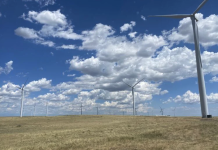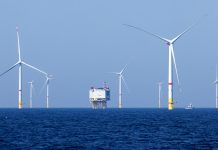Westnetz, one of Germany’s largest distribution network operators, is building a 17-kilometer underground cable system in Hunsrück as part of its efforts to support the transition to renewable energy. This new high-voltage cable will transport renewable wind power from turbines at Hunsrück to the region’s urban centers. Pfisterer is supplying the entire 110 kV cable system with a total cable length of about 52 kilometers together with the cable accessories, as a turnkey system.
Westnetz, the distribution network operator for the Trier region and a subsidiary of Innogy, views the 19 million euro project as an investment in transition to renewable energy in Rhineland-Palatinate. Its existing distribution network in Hunsrück is now operating close to capacity due to the rapid growth of renewable energy generation. Consequently, surplus wind energy will soon be transported from a substation in Thalfang (110 kV) through a 17 kilometer renewable energy connection to a substation in Osburg.
“We are delighted to be continuing our partnership with Westnetz, a long-term customer, on this key project for the 110-kV distribution network, and thereby contributing to the transition to renewable energy in Rhineland-Palatinate,” said Vukasin Basara, senior manager of Underground Cable Projects with the PTS Cable business unit at Pfisterer. “This is Pfisterer’s largest order for HV AC underground cables and demonstrates our customer’s trust in our experience and expertise in handling complex high-voltage underground cable projects.”
To support the installation, trenches 1.5 meters deep and 1.7 meters wide will be dug along the 17.3-kilometer route, which will run predominantly along rural roads and over public land. According to Westnetz, this is the longest underground cable they have ever installed. Pfisterer is supplying the complete cable system as a turnkey solution. Initially, three cables will be installed in parallel conduits, but three additional empty conduits also will be installed to allow for future expansion. Installation of the underground cable, with a combined total length of 52 kilometers, will begin in early 2020. Fiber-optic conductors will be integrated into the cable screen, and two conductor cross-sections, one 1,200 square millimeters and the other 1,800 square millimeters, will be used to achieve the required transmission capacity.
More info www.pfisterer.com



























